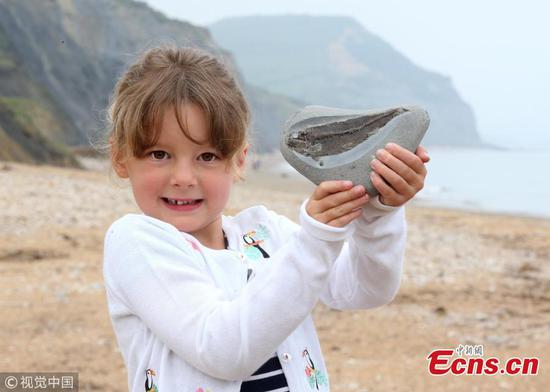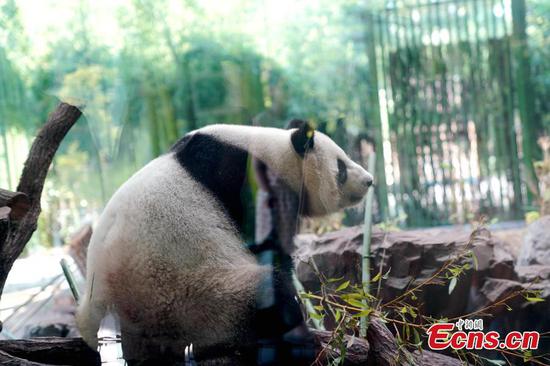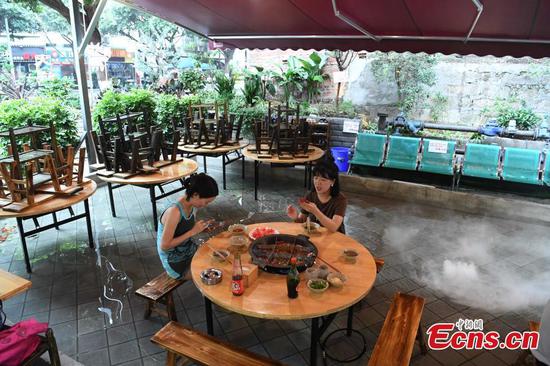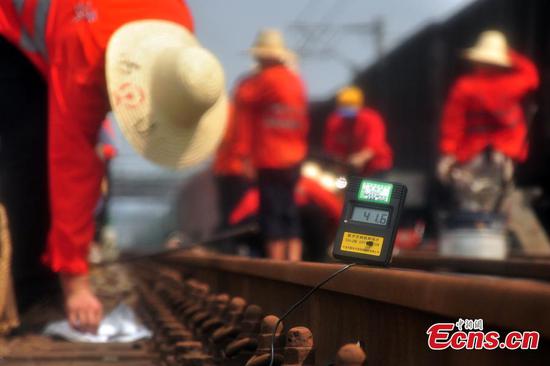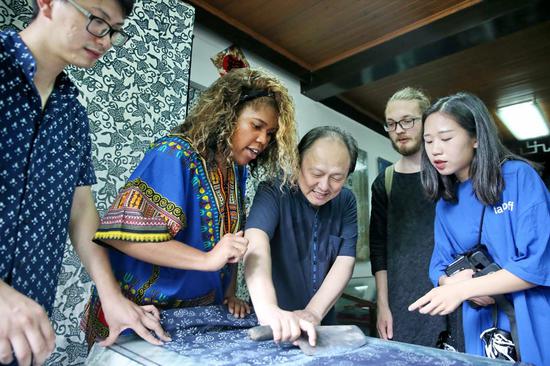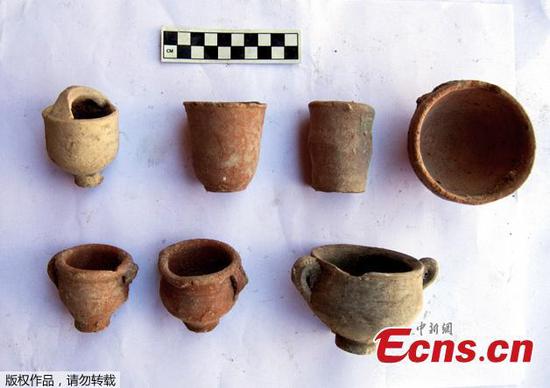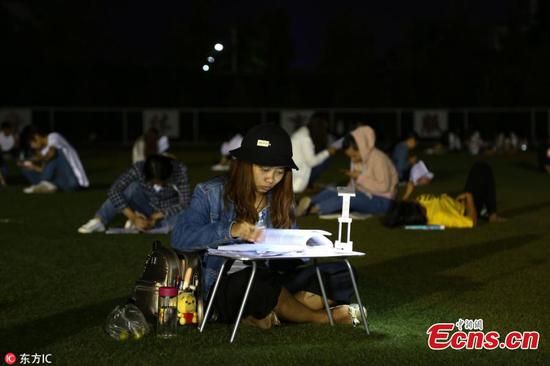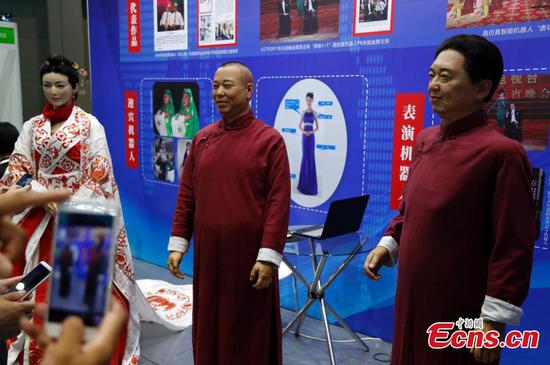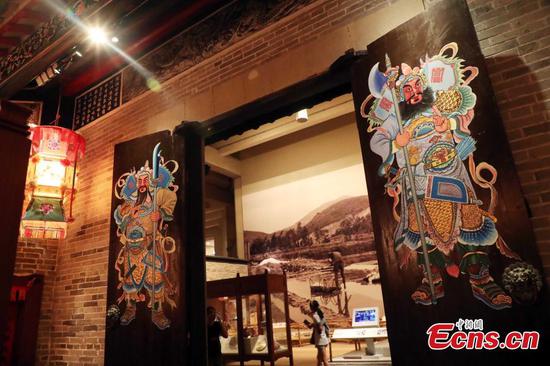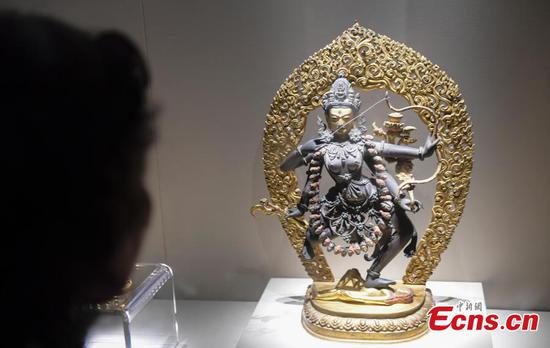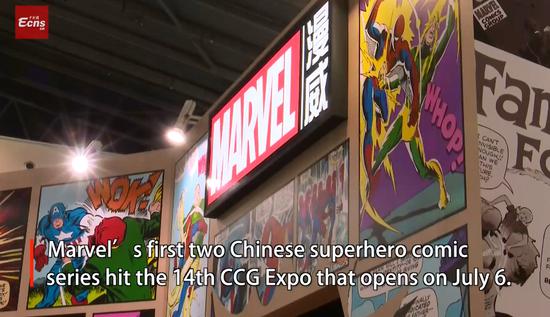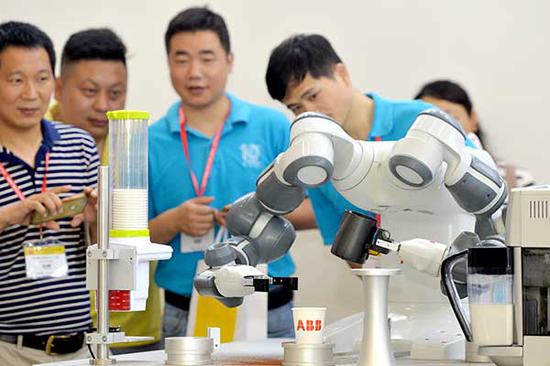
YuMi, a robot produced by ABB, makes coffee for visitors at a fair in Wuhan, Hubei province. (Photo by Zhou Chao/for China Daily)
U.S. accusation of 'unfair playing field for foreign firms' is baseless, say experts
Trade disputes with the United States will not hamper China's ongoing move to become an advanced manufacturing power with intensified research and development efforts and international cooperation, experts said on Friday.
Terming the U.S. accusations that the Chinese government has created an unfair playing field for foreign companies as baseless, the experts said international firms have gained immensely from China's intensified investments into smart manufacturing.
Zhu Sendi, a member of the National Manufacturing Strategy Advisory Committee, which advises the central authorities on manufacturing policies, said "China's long-term plan will not be influenced by the trade spat between the world's two largest economies."
The comments came after the Trump administration imposed 25 percent tariffs on $34 billion worth of Chinese products effective on Friday. In response, China has imposed similar tariffs on goods imported from the U.S..
According to Zhu, China has no intention of limiting the market share of foreign companies when upgrading its industries, as expanding international cooperation is a key part of its development strategy.
"Nothing demonstrates this better than the increased presence of foreign industrial robot makers in China. As local companies scramble to deploy highly automated machines in assembly lines, the demand for foreign products has surged in recent years," said Zhu.
The combined market share of international robot makers including ABB Group of Switzerland and Fanuc from Japan jumped to 73.2 percent in 2017 from 67.3 percent in 2016, according to data from China Machinery Industry Federation.
More importantly, last year, foreign robot makers achieved about 72 percent year-on-year growth in sales volumes in China, overtaking their Chinese counterparts which reported around 30 percent growth.
One of the reasons cited by Trump to impose increased tariffs is that the Chinese government has given an unfair advantage to domestic companies via subsidies.
But Qu Xianming, an analyst from Chinese Mechanical Engineering Society, said such an accusation is groundless.
Local governments have never poured money to subsidize companies' specific products. Instead, they are using a small sum of money to guide domestic companies to step up investment in crucial technologies, in the hope of tackling industry-wide bottlenecks. A majority of the investments came from companies themselves, Qu said.
Zhu agreed, saying this is a common practice used by many countries, including the U.S.. When the White House rolled out the Advanced Manufacturing Partnership project in 2011, it also pledged to invest more than $500 million to jumpstart this effort.
"What China has done is roughly the same as what the U.S. has done with its AMP initiative," Zhu said. "When drafting China's manufacturing plan, we have frequently consulted the U.S.' AMP effort."
Currently, China has wide exchanges with international partners on smart manufacturing projects, such as teaming up with Germany on Industrial 4.0, and with Japan on refined manufacturing, according to information provided by the Ministry of Industry and Information Technology.










